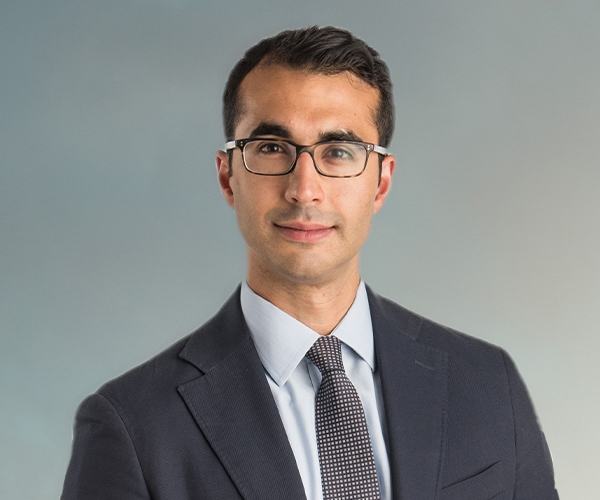Program Update
The University of Michigan Law School has paused certificate admissions so that we can devote significant time and resources to evaluating, optimizing, and potentially growing our Certificate of Advanced Corporation Law program.
Give Your Career a Boost
Spend part of your summer—4 weeks for one certificate or 8 weeks for both—studying in residence at the University of Michigan Law School in Ann Arbor, Michigan.
Taught by Michigan Law faculty members and scholars from across the globe who are ranking experts in corporate and securities law, the Certificates of Advanced Corporation Law courses are designed to provide rich preparation for future leaders in transnational corporate practice.
Students spend four weeks to earn one certificate, or eight consecutive weeks to earn two certificates in one summer, studying and living in residence at the Michigan Law School in Ann Arbor.
The Global Capital Markets Certificate provides for a concentration on U.S. and international securities regulation, while the Global Transactions Certificate focuses on U.S. and trans-border mergers and acquisitions.
Both certificates are designed for U.S. and internationally trained lawyers who want to specialize in international corporate law to advance or re-orient their careers. Each certificate is earned during four weeks of participation in a part of the intensive MACL degree program. Each certificate program includes one mandatory course and one of two offered electives. The mandatory course runs for three weeks, and the elective is just over one week long.
Request Information
CACL Admissions Guidelines
We are no longer accepting applications for the 2023 CACL program. If you are interested in learning more about the advanced corporation law programs, please complete the form above or email us directly.
-
Application Checklist
- Completed application form
- Curriculum vitae or resume
- Statement of purpose
- Official transcripts (JD or LLB equivalent; advanced degrees, if applicable)
- Two letters of recommendation
- Application fee: $75 payable to the University of Michigan Law School by personal check drawn on a U.S. bank account. Alternatively, upon receipt of your application, we will send you instructions for payment by credit card.
For Non-native English Speakers
TOEFL , IELTS, or Duolingo English tests. (The program accepts the special editions of TOEFL and IELTS designed for the duration of the pandemic.)
-
English Proficiency Requirement
A high level of English proficiency in reading, writing, speaking, and listening is required, as evidenced by an iBT TOEFL (minimum score of 100), an IELTS (minimum score of 7.0), or the Duolingo English Test (minimum score of 125).
English Proficiency Testing Exceptions
Applicants who are residents of Australia, Canada (other than Quebec), Ireland, New Zealand, the United Kingdom, or the United States (other than Puerto Rico) and who have completed a rigorous full-time program of at least three years of post-secondary education in one of these countries are not required to submit English test scores.
CACL Program of Study
Global Capital Markets
-
US Securities Regulation in a Global Context (Required)
This is an introductory US securities regulation course focusing on the Securities Act of 1933 and, to a lesser extent, the Securities Exchange Act of 1934.
The course will examine securities offerings and the registration process for both issuers and control parties under the Securities Act, reporting requirements under the Exchange Act, and liability for false or misleading disclosure in both situations, all under both the Securities and Exchange Acts as well as the Private Securities Litigation Reform Act of 1995, the Sarbanes-Oxley Act of 2002, the 2005 offering reforms, the Dodd-Frank Wall Street Reform and Consumer Protection Act of 2010 and the Jumpstart Our Business Startups Act of 2012.
-
Cross-Listings in Global Securities Markets (Elective A)
Stock exchanges around the world compete to list firms. An important feature of international securities markets is the phenomenon of “cross-listings.”
In a cross-listing, a firm lists its shares for trading on more than one stock exchange. Typically, a cross-listed firm will list both on its domestic stock exchange and on one or more foreign exchanges but that need not be the case. The Chinese tech giant Baidu is listed on NASDAQ in the United States, but also later listed in Hong Kong. Cross-listing involves important economic dynamics. Stock exchanges compete along various dimensions, including governance and market structure, to attract listings.
Corporations may seek optimal regulatory environments as well as to signal quality governance through their listing decisions. This course will examine the legal and regulatory processes involved in cross-listings, the empirical debates involving them, and the impact of cross-listings on international corporate governance.
-
Cryptocurrencies and the Law (Elective B)
This course examines the regulation of cryptocurrencies and their market structure. Its focus lies in: (i) understanding the technological basics of cryptocurrencies (including stablecoins), notably Bitcoin and its blockchain, and their trading mechanics; and (ii) developing a sophisticated account of the wider financial ecosystem, known as decentralized finance (defi), that has arisen around crypto-concepts.
In analyzing cryptocurrencies and their related markets, the course is designed to help students more fully understand the risks and benefits of crypto-markets with a view to critically surveying prevailing regulatory approaches both in the United States and abroad. In exploring cryptocurrencies and their markets, the course straddles the intersections of financial market structure, consumer protection, platform design, and financial stability.
Global Transactions
-
US Corporate Mergers and Acquisitions in a Global Context (Required)
This course focuses on the role of law and lawyers in the evaluation, design and implementation of corporate acquisitive transactions, including mergers, asset sales, and stock sales. Primary attention will be devoted to corporate law issues relevant to mergers and acquisitions (both statutory and case laws) and important forms of private ordering, such as the allocation of risks through the acquisition agreement. We will also analyze relevant accounting, finance, tax, and international issues.
-
Antitrust Considerations in M&A Transactions (Elective A)
This course will cover the competition law and antitrust issues that arise in M&A transactions. Topics will include reportability under the Hart Scott Rodino Act, “gun jumping,” substantive standards for horizontal and vertical merger review, the process of working with clients, economists, and agency staff, merger remedies (including divestiture and conduct remedies), non-reportable transactions, and strategic considerations. Primary emphasis will be on US law and regulatory practice, with comparative notes.
-
Deals (Elective B)
This course focuses on the common economic problems that drive deal structuring and deal contracting, both in the United States and internationally. Although deals vary in their details, they share common economic problems, such as issues of rent-seeking, moral hazard, and information asymmetry.
This course introduces students to the economic tools necessary to evaluate alternative contractual regimes, including transaction costs, information economics, risk sharing and incentives, property rights, and finance. Then, it applies that knowledge to the evaluation of different real-world deals, with the particular deals selected to give students a range of subject matters in order to highlight a common set of problems and solutions that arises in multiple settings.
In the past, Deals courses have included the study of mergers and acquisitions, securities offerings, venture financing, movie financing, spin-offs, international tax transactions, and securitizations, among others.
Master of Advanced Corporation Law (MACL)
Seeking a more in-depth experience?
Taught by Michigan Law faculty members and scholars from around the globe, the MACL degree’s coursework and writing programs offer rich preparation for future leaders in transnational corporate practice.
The 20-credit, 12-week program of study is split into three four-week “sessions.” Over the course of these sessions, students participate in a required research seminar, three mandatory courses, three elective courses, and a writing and research project.
Tuition and Fees
- $26,436 for Michigan residents
- $28,236 for non-Michigan residents
For estimated housing, living and health insurance costs, please see the MACL sample budget.
Housing
Housing is not included as part of the program. However, Ann Arbor’s summer sublet market is usually rather robust such that furnished and unfurnished apartments and houses may be found within walking distance of the Law School. Students admitted to the program will receive additional information to assist them with their housing search.

For anyone passionate about corporate and commercial law practice, I strongly recommend this program. We learned not only from top faculty, but also from each other about foreign jurisdictions and different cultural perspectives. I left with unforgettable memories and great friends in different parts of the world.
Our Faculty
MACL and CACL faculty include some of the most celebrated corporate and securities law experts in the world, with expertise not only in U.S. and international corporate, securities and M&A law and regulation but experience in major global law firms in related transactional practice and litigation.
Through intensive interactions with these teaching experts in the classroom and outside, Certificate of Advanced Corporation Law students can take their corporate practice to the next level, or move confidently into corporate transactional work from other areas of practice.

Howard J. Bromberg
Legal Practice Program
University of Michigan Law School
Read more

Albert H. Choi
University of Michigan Law School
Read more

Daniel A. Crane
University of Michigan Law School
Read more

Cathy Hwang
Faculty Director, John W. Glynn Jr. Law & Business Program
University of Virginia School of Law
Read more

Vikramaditya S. Khanna
University of Michigan Law School
Read more

Hwa-Jin Kim
University of Michigan Law School
Read more

Mark K. Osbeck
Legal Practice Program
University of Michigan Law School
Read more

Gabriel V. Rauterberg
University of Michigan Law School
Read more

Karen Woody
Washington and Lee School of Law
Read more

Yesha Yadav
Professor of Law
Vanderbilt Law School
Read more

The courses were highly relevant and useful for us corporate lawyers, and the professors—experts of worldwide renown—taught us with passion for their subjects and sincere care for each student.

